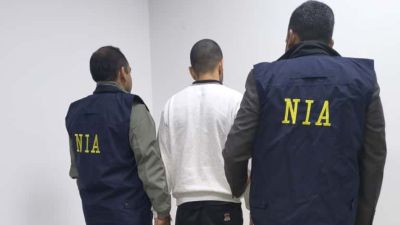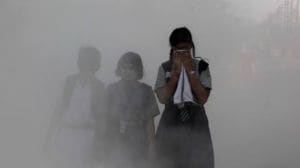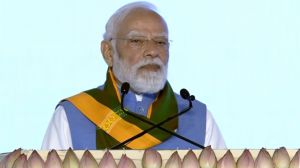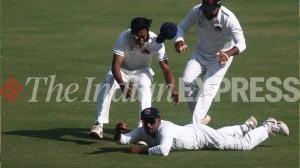At Siachen the annual toll is 44 dead, 140 injured
THOISE(SIACHEN), SEPTEMBER 30: A black flag fluttered at the Leh military air base. One more soldier had been killed at the Siachen glacie...

THOISE(SIACHEN), SEPTEMBER 30: A black flag fluttered at the Leh military air base. One more soldier had been killed at the Siachen glacier. The death count in the 15-year-old war is now 670. On an average, one soldier is killed every week and 44 every year. Army figures say more than 2,000 have been injured.
Bad weather is the biggest killer at the 76-km long Siachen glacier where India and Pakistan are locked in a death game since the summer of 1984. At 22,000 feet, the chilly winds and the forces of the General glacier make life hell for the 2,000 plus Indian soldiers who are spread out on the ice desert were the temperatures vary from -20 to -40 degree Celsius. "Less than one-third of the total casualty is due to war or firing by Pakistani soldiers," sources in Leh said.
Indian Air Force personnel during a briefing here said that on an average they pick up one casualty every day from the glacier. At the Leh airfield soldiers of the Sikh regiment stood guard waiting to load the body in the aircraft for Chandigarh. The weather prevented the aircraft from landing during the day.
Though the Government claims it has provided its men the "best available extreme cold climate clothing in the world", soldiers and aviators have a different story to tell.
"We still lack warm gloves. This problem has been persisting for over 15 years. Our fingers grow numb. The world does not have heights up to 22,000 feet and does not manufacture gloves for this altitude. What is the Defence Research and Development Organisation (DRDO) doing in this regard?," asks a soldier. Adds a soldier at the Thoise military air base: "The oxygen in the air here (11,000 feet) is 100 per cent pure but 30 per cent less. The body system takes time to acclimatise."
Soldiers learn to battle the forces of General glacier at the Siachen Battle School (SBS) at the base camp almost 2,000 feet higher.
At present, a Gorkha Rifles battalion is training here and soldiers are being taught to negotiate crevices and prevent sliding while carrying heavy loads. Doctors are hard pressed. Soldiers lose up to 20 kg of weight. Young soldiers come down from 18,000-21,000 feet altitudes after their three-month tenure with grey hair, shrivelled bodies and sunken faces.
"Tenures are being brought down. The casualty rate is very high at the glacier, especially since we occupy the heights. The tenure on Bana post (one of the highest and 21,000 feet) has been brought down to 22 days. That at Kumar post is 45 days and at the less difficult ones it remains at 90 days," says a soldier.
Life is, indeed, tough in this ice desert. Nothing decomposes. Not even the body wastes. The soldiers defecate and urinate in the same snow they are forced to depend on for drinking water. The air in higher altitudes is rare and the body is starved of oxygen. The common problem at the glacier is memory loss, lung problems and total loss of appetite.
Soldiers, however, have developed ingenuous ways to beating the cold. "Here for six months we wear five layers of cold and still feel cold. Therefore we love newspapers. Not to read but to wrap around our fingers and legs. They trap the warmth beneath the gloves we wear and reduce the wind chill factor," says a pilot who has been flying in the ice desert for more than three months.
Soldiers realise the war is not a solution to the problem of the Siachen glacier. But they also realise that it is not their job to reason about the solution. So, the war, with the enemy across the border and the weather gods, has to go on. Perhaps with the hope, as in one of their slogans: "We do the difficult as routine/The impossible may take a bit longer."


- 01
- 02
- 03
- 04
- 05





























